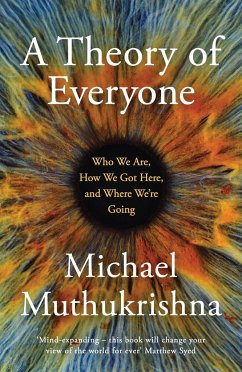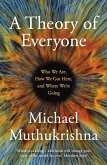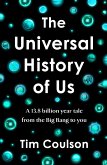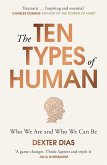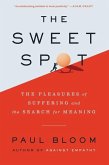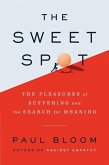A blueprint for a better future. Playing on the phrase "a theory of everything" in physics, Michael Muthukrishna's ambitious, original and deeply hopeful book, offers a unified theory of human behavior, culture, and society - a theory of everyone. In A Theory of Everyone, Muthukrishna draws on the most recent research across the sciences, humanities, and the emerging field of cultural evolution to paint a panoramic picture of who we are and exactly what makes human beings different from all other forms of life on the planet. He argues it is our unique ability to create culture, a shared body of knowledge, skills, and experience passed on from generation to generation, that has enabled our current dominance. But it is only by understanding and applying the laws of life - the need for energy, innovation, cooperation and evolution - that we can solve the practical and existential challenges we face as a species. A Theory of Everyone attempts to provide solutions for how to solve the most pressing problems of our collective future, such as polarization, inequality, the "great stagnation" in productivity, and the energy crisis. Casting a bold and ambitious net, Muthukrishna's book is a must-read for anyone interested in a better future for ourselves and generations to come.
Hinweis: Dieser Artikel kann nur an eine deutsche Lieferadresse ausgeliefert werden.
Hinweis: Dieser Artikel kann nur an eine deutsche Lieferadresse ausgeliefert werden.

